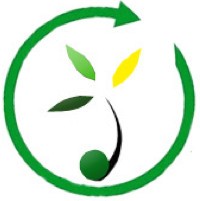Categories: Canola; Oil Quality; Fertility; Agronomy ECODA project number: B.2.5, B.2.6 and B.2.7 Principal investigator: Hugh J. Earl Executive Summary Elevated levels of free fatty acids (FFAs) in the seed has historically been the most important quality defect threatening marketability of
Identify the molecular basis of green seed in canola and develop gene-based markers for degreening
ECODA project number: B.2.4 Principal investigator: K. Peter Pauls Executive summary The presence of green seed in canola at harvest is unwanted, because chlorophyll in the oil is undesirable from a consumer’s perspective and leads to rancidity in the oil.
Evaluation of natural products on agronomic features of canola: Effect of treatments on crop germination, growth, fatty acid profile and yield of canola in Eastern Canada
Categories: Canola; Agronomy; Oil Quality ECODA project number: B.2.2 and B.2.3 Principal investigator: Balakrishnan Prithiviraj Executive summary Marine bio-products have been known to induce plant responses such as altered fatty acid biosynthesis, induce plant defense to pathogens, improve crop growth under
Test the ability of signaling compounds to help canola plants overcome temperature stresses in controlled environment and field experiments
ECODA project number: B.2.1 Principal investigator: Donald L. Smith Executive Summary The objective of this sub-activity was to understand the potential for microbe-to-plant signaling compounds such as lipochitooligosaccharides (LCOc) and thuricin 17 to help canola plants deal with stressful growing
Development of high oil canola varieties/genotypes packaged with superior traits and suitable for cultivation in Eastern Canada
ECODA project number: B.1 Principal investigator: Peter B.E. McVetty Executive summary Canola production in Eastern Canada is limited to the use of cultivars developed specifically for Western Canadian growing regions. The objective of the ECODA B1 project was to identify
Assessment of the impact and interactions of emerging crops on potato-based cropping systems (PEI and New Brunswick)
ECODA project number: <strong>Oilseeds East Activity 16</strong> Objectives: The primary objective is to generate local data and understanding of the imp ace of oilseed production in a region that has traditionally been focused on potatoes. There are four sub-activities: Evaluate
Crop rotation with potatoes (Quebec)
ECODA project number: Oilseeds East Activity 17 Objectives: Evaluate the integration of canola in a potato cropping system and measure the benefits and/or negative impacts during the potato year. Compare rotation system including canola with conventional and new potato cropping
Volunteer canola control
ECODA project number: Oilseeds East Activity 18 Objectives: Determine if there are herbicide tank mix combinations that will control volunteer Roundup Ready (RR) canola in a crop of RR corn. Determine if there are herbicide tank mix combinations that will
Winter canola rates/dates trial
ECODA project number: Oilseeds East Activity 19 Objectives: Test varieties/genotypes at sites across eastern Canada. Identify combination of varieties and optimum fertilization for specific locations Assess the suitability of winter-seeded spring-type canola for eastern Ontario. Investigate winter survival and the yield
Improving oil quality of Eastern Canadian canola
ECODA project number: B.2.5, B.2.6 and B.2.7 Principal investigator: Hugh J. Earl Executive Summary Elevated levels of free fatty acids (FFAs) in the seed has historically been the most important quality defect threatening marketability of the Ontario canola crop. Accordingly, variety
